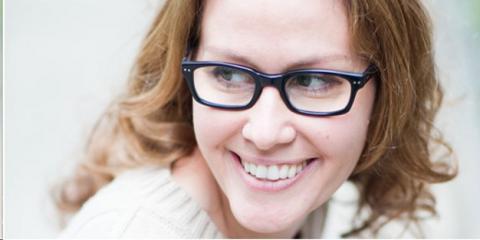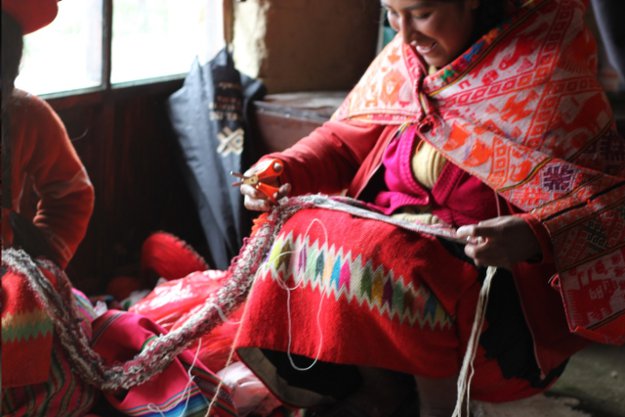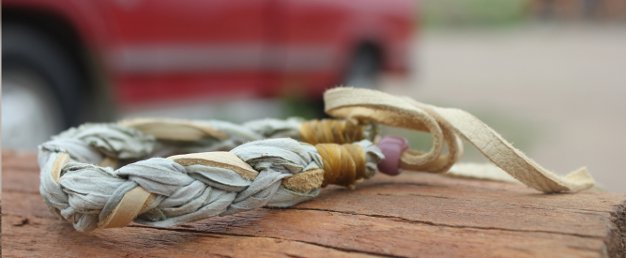Tsunami Survivor Pays It Forward a Decade Later through ‘A Global Friendship’

It is not unusual in our well-connected world for 20-somethings to trek to far away places in search of answers. While abroad, many of these adventurers develop fresh perspectives, invigorating ideas and good intentions for their professional lives. Sometimes these journeys of self-discovery also ignite a desire to give back to the communities they visit. Once these travelers return home, however, it often becomes difficult to maintain the same dedication to the causes that inspired them on the road.
But after visiting Thailand to study Reiki, a form of spiritual healing, and narrowly surviving the 2004 tsunami, Elizabeth Firgeleski did just that. Motivated by the local Thai families that helped her escape danger as they were salvaging their own lives, and haunted by the memory of drowning men on a Krabi beach who called out for help as she fled, she decided to act. Nearly two years later, supported by funds from a day job at a software company and the courage that comes with distance from life-altering events, she returned to Thailand. Initially working on a shoestring budget, she hunted down attractive handicrafts sold by street vendors and in markets, talked to local artisans about their sourcing, and brought home handmade goods. Her goal was to scale up these businesses and to sell the products to consumers in the United States.
This model became the basis for A Global Friendship (AGF), the Brooklyn-based nonprofit she founded in 2007. AGF strives to alleviate poverty by building small businesses in communities in need. And it focuses specifically on women’s empowerment as a way to fight poverty.
“The women that I came across made beautiful products, and stateside we love to consume. So to me it was a simple formula to offer the opportunity to women who had none and keep women employed in a sustainable way,” Firgeleski says.
Project Home, A Global Friendship’s primary development project, trains women who live on less than $10 a day in product design and small business skills so they can produce environmentally-friendly crafts that appeal to a widespread audience. AGF also gives micro-grants to project leaders to purchase supplies. At home in Brooklyn, the organization seeks out retail partners that are interested in adding these goods to their global supply chains and corporate sponsors looking to enhance their corporate social responsibility profiles. AGF has supported projects in Thailand, Indonesia, Peru, India and the United States.

In the beginning, Firgeleski sold handmade accessories and clothing out of a trunk wherever she could find a captive audience -- in the gym, at yoga studios, at work, at home and in pop-up stores at restaurants and bars. Over time, she started selling wholesale nationally. A Global Friendship has worked with online partners and notable brands, including Abe’s Market, Fab.com, Orvis, Free People, the Sundance Channel, AHAlife and the subscription box company Indie Gift Box. AGF also sells accessories for men and women through its online shop and plans to expand to home goods like pillows and pottery.
As with most nonprofits, the organization relies heavily on donations. Last year, A Global Friendship ran a Kickstarter campaign, which met its goal and raised a total of $12,515. These donations support the work of Lakota Sioux women on the Pine Ridge Reservation in South Dakota who created a unique bracelet made of braided leather and wild sage.
Respect for the environment is a key pillar behind the mission. “Having the least impact on the earth has been at the core of our mission, based on the fact that AGF was born out of the largest natural disaster to hit the earth,” Firgeleski says. AGF uses renewable and biodegradable resources that are sourced locally, including waxed linens, cottons, seeds and nuts. For instance, wild sage is abundant on the Pine Ridge Reservation and Huayruro seeds, the primary material for one AGF’s Peruvian bracelets, are plentiful in the local Amazon rain forest.
A Global Friendship also sells products from recycled goods. The first sales included handbags made from old Thai clothing. And a colorful wrap bracelet from India is made from plastic bags that litter the community in Faridabad where the women who make these handicrafts live and work.

Many pieces tell a story inspired by the cultures of the women A Global Friendship serves. The wild sage harvested on Pine Ridge Reservation is believed by the Sioux tribe to ward off bad energy and promote healing. Peruvians consider Huayruro seeds to be good luck so they often give them as first gifts to newborns.
Such positive connections to the landscape resonate with Firgeleski, whose labor of love grew out of her own tragic experience with nature. As she reflects on the Thais who helped her that day almost 10 years ago – the family that stopped packing up the remains of their fruit cart business to release her friend’s moped from the mud as waves approached, an Internet café shop owner who threw her a life preserver as she ran through chest-deep water to higher ground, and a group that stopped their Subaru to drive her inland to safety – she is thankful for all they did to help her survive. Yet she remains mindful of the lives that were lost, particularly those of the men she heard screaming for help as they struggled in the quickly approaching waves.
Through her work with A Global Friendship, Elizabeth Firgeleski has found a way to pay it forward and to keep their memory alive. She has also remained true to a formerly vague aspiration to help people in developing countries. To her delight, AGF now represents an experiment in sustainable development with a global footprint, not merely the Eat, Pray, Love journey of self-discovery that originally fostered its inception. It has also helped trigger a growing movement of nonprofit and for-profit organizations that tie consumerism and fashion to charitable giving and development.
This December will mark the 10-year anniversary of the 2004 Indian Ocean tsunami. Firgeleski plans to remember the victims in her prayers and meditation. And through her ongoing work with AFG, the organization she founded over seven years ago, she also hopes “to honor all those we lost that day and to remind people that everyday is a chance to make someone’s life a little better.”

Author Bio:
Annie Castellani is a contributing writer at Highbrow Magazine. She is also on the board of directors of A Global Friendship. Follow Castellani on Twitter: @TheSustainCapit































































































































































































































































































































